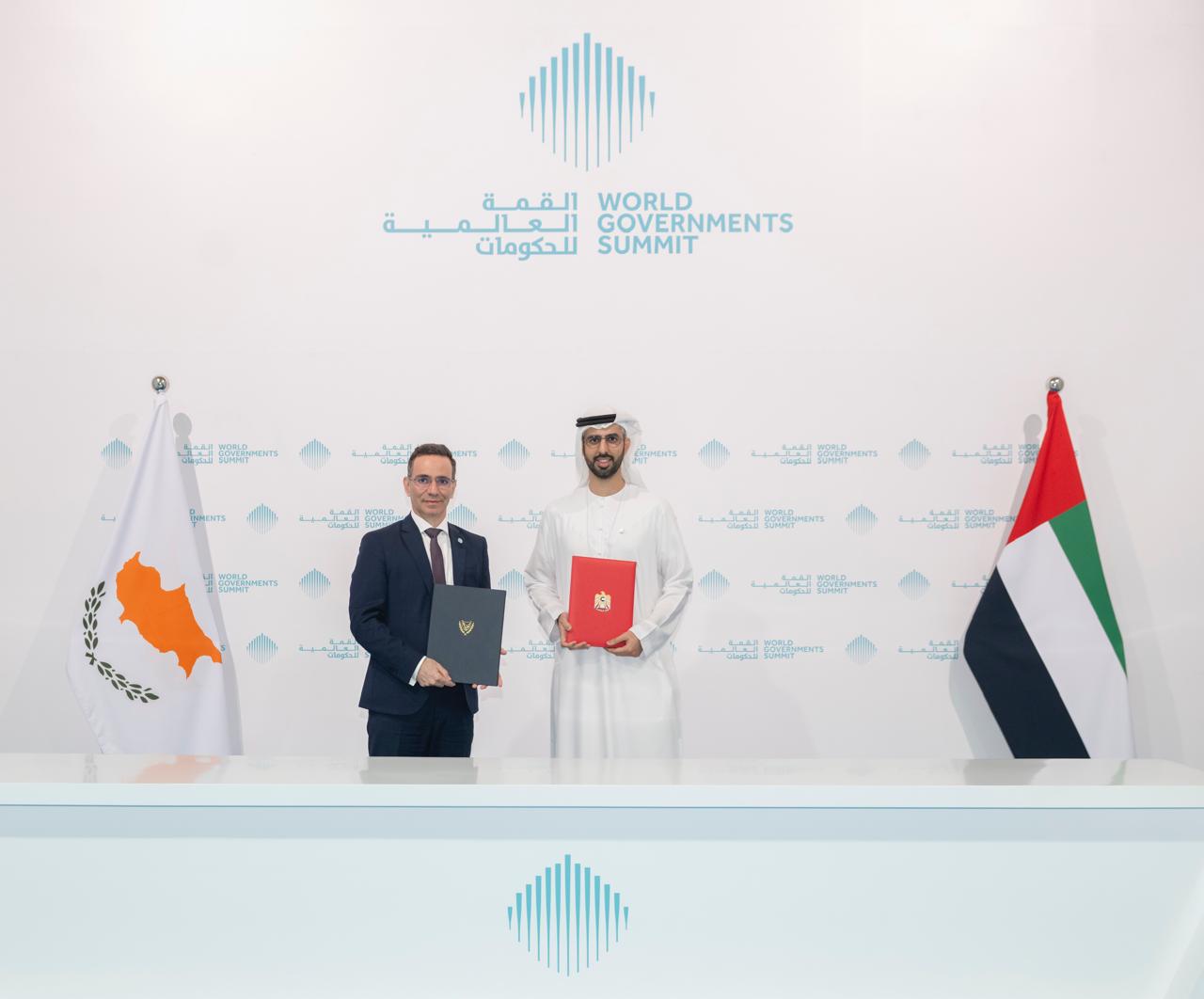Cyprus’ Deputy Minister of Innovation, Nicodemos Damianou, and UAE Minister of State for Artificial Intelligence, Digital Economy, and Remote Work Applications, Omar Sultan Al Olama, have signed a Memorandum of Understanding on artificial intelligence cooperation.
The signing took place at the World Governments Summit in Dubai on February 12-13, highlighting the commitment of both nations to advancing AI collaboration.
According to the announcement, the MoU, signed against the backdrop of a summit that draws global technology leaders, “aims to strengthen bilateral ties by fostering innovation and addressing socio-economic challenges jointly”.
Furthermore, it facilitates the exchange of best practices and the acceleration of AI technology integration in both public and private sectors, “aiming to enhance the AI ecosystems within each country”.
A statement from the deputy ministry noted that “Damianou thanked his counterpart for his hospitality and his commitment to deepening cooperation between the two countries”.
“The foundations are being laid for an even stronger, more tangible and more effective relationship,” Damianou said.
Moreover, he explained that this partnership “can promote innovation and development, and propose solutions to common socio-economic challenges”.

“With AI being at the heart of technological advances, international cooperation, particularly with pioneering countries in the field, such as the UAE, is essential to ensure that AI is developed, effectively harnessed and used responsibly,” he added.
“This MoU, the Cypriot minister continued, “reflects our shared commitment to harness AI as a key pillar of development for the benefit of our economies, industries, and citizens.”
He also expressed hope that the partnership could “evolve into a regional effort for joint initiatives, which leverages on the one hand the geostrategic position and geopolitical importance of Cyprus and on the other hand the technological leadership of the UAE, from which we have much to learn.”
On his part, UAE Minister Al Olama emphasised the importance of such international colaborations.
“These partnerships,” he said, “reflect the goals and vision of the WGS 2025 Summit itself, in terms of the importance of enhancing international cooperation, as well as the UAE’s position as a global hub of innovation in the field of artificial intelligence.”
Al Olama concluded that “these are a mechanism for building a sustainable future based on advanced technologies.”
It should be noted that artificial intelligence is said to have the potential to “transform the productivity and GDP potential of the global economy”.
Consulting and advisory firm PwC has stated that “strategic investment in different types of AI technology is needed to make that happen“.
In its study on the topic, PwC said that “labour productivity improvements will drive initial GDP gains as firms seek to augment the productivity of their labour force with AI technologies and to automate some tasks and roles”.
“Our research also shows that 45 per cent of total economic gains by 2030 will come from product enhancements, stimulating consumer demand,” PwC said.
“This is because AI will drive greater product variety, with increased personalisation, attractiveness and affordability over time,” it added.

